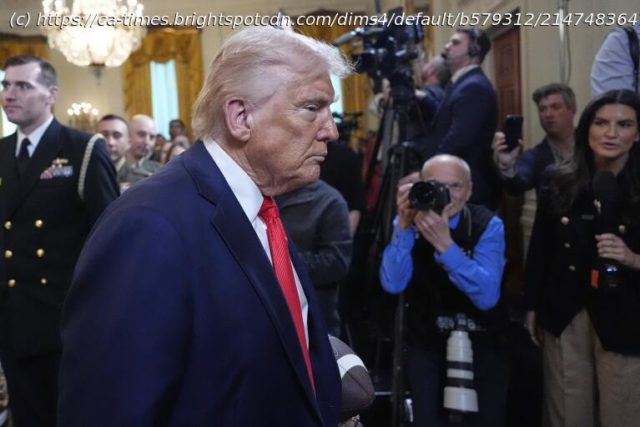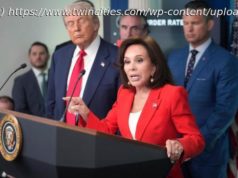President Trump’s defiance of court orders in a case involving a resident of Maryland being wrongly deported to a Salvadoran prison has pushed the country to a constitutional tipping point, according to legal experts.
It was just the latest example of President Trump, still in the infancy of his second term, appearing to plow through direct orders from a U.S. court. But it was the sharpest moment yet of a federal judge losing patience.
U.S. District Judge Paula Xinis had asked what the administration had done, if anything, to follow a ruling from the highest court in the land, and reached a stark conclusion.
“To date, nothing has been done,” Xinis told the Justice Department lawyer before her Tuesday. “Nothing.”
The Supreme Court had ordered the administration last week to “facilitate” the return of a Maryland resident named Armando Abrego Garcia, whom it had deported to a notorious El Salvador prison despite an earlier court order barring such a move.
The administration had defied that order and made no secret of it. On cable TV, through social media and from the Oval Office, the president and his allies were clear they had no intention to work toward Abrego Garcia’s return.
Still, Xinis’ concluding as much in court added fresh weight to a profound question swirling with increasing intensity in recent days among government officials and watchdogs, constitutional scholars, legal experts and worried members of the public: If the president refuses to abide by court rulings, then is the United States in a constitutional crisis?
If Trump won’t listen to the Supreme Court, is the entire U.S. system of governance — the separation of powers, an independent judiciary, due process under the law — at risk of faltering?
For some, the answer is an affirmative yes — the actions of the administration in the Abrego Garcia case a clear tipping point.
“There is no guarantee that President Trump will abide by his legal and constitutional obligations, and he has already shown a willingness to violate those obligations many times over,” said Jamal Greene, a constitutional law professor at Columbia University.
Others said that the risk is certainly there, but that legal nuance remains in the maneuverings of the Trump administration — enough to imagine a less fraught future in which the administration falls back in line as the courts make their directives in the Abrego Garcia case less ambiguous and harder to skirt using dubious but still barely defensible legal arguments.
Robert Weisberg, a professor at Stanford Law School, said the judiciary also still has tools at its disposal to enforce its rulings should Trump and his team continue defying court orders, and especially the Supreme Court.
For example, if a court issues an injunction “saying, ‘You can’t do this,’ ” and the administration does it anyway, the court can hold the administration in contempt. And, the U.S. Marshals Service, the law enforcement arm of the judicial branch, can be called upon to enforce the court’s orders, Weisberg said.
“So there are ways,” he said. “The Supreme Court has tools.”A deportation with consequences for Trump
Either way, the case raises stark questions for a country already exhausted by a steady stream of unprecedented moves by the Trump administration and a mountain of lawsuits challenging them — on immigration enforcement, federal funding streams to the states, LGBTQ+ rights and school funding, among many issues.
California Atty. Gen. Rob Bonta’s office has already sued the Trump administration more than a dozen times and expressed support for litigants suing the administration in at least half a dozen other cases. Other Democratic-led states have joined California in its cases.
Time and time again, courts have blasted the administration for violating the law — sometimes in flagrant ways. And in multiple instances, the administration has defied court instructions to reverse course, judges and litigants against the administration have said.
California has alleged that the administration has failed to unfreeze funding, including under the Federal Emergency Management Agency, despite court orders for it to do so.
Home
United States
USA — Criminal Defying courts in deportation case, Trump risks a tipping point, experts say






